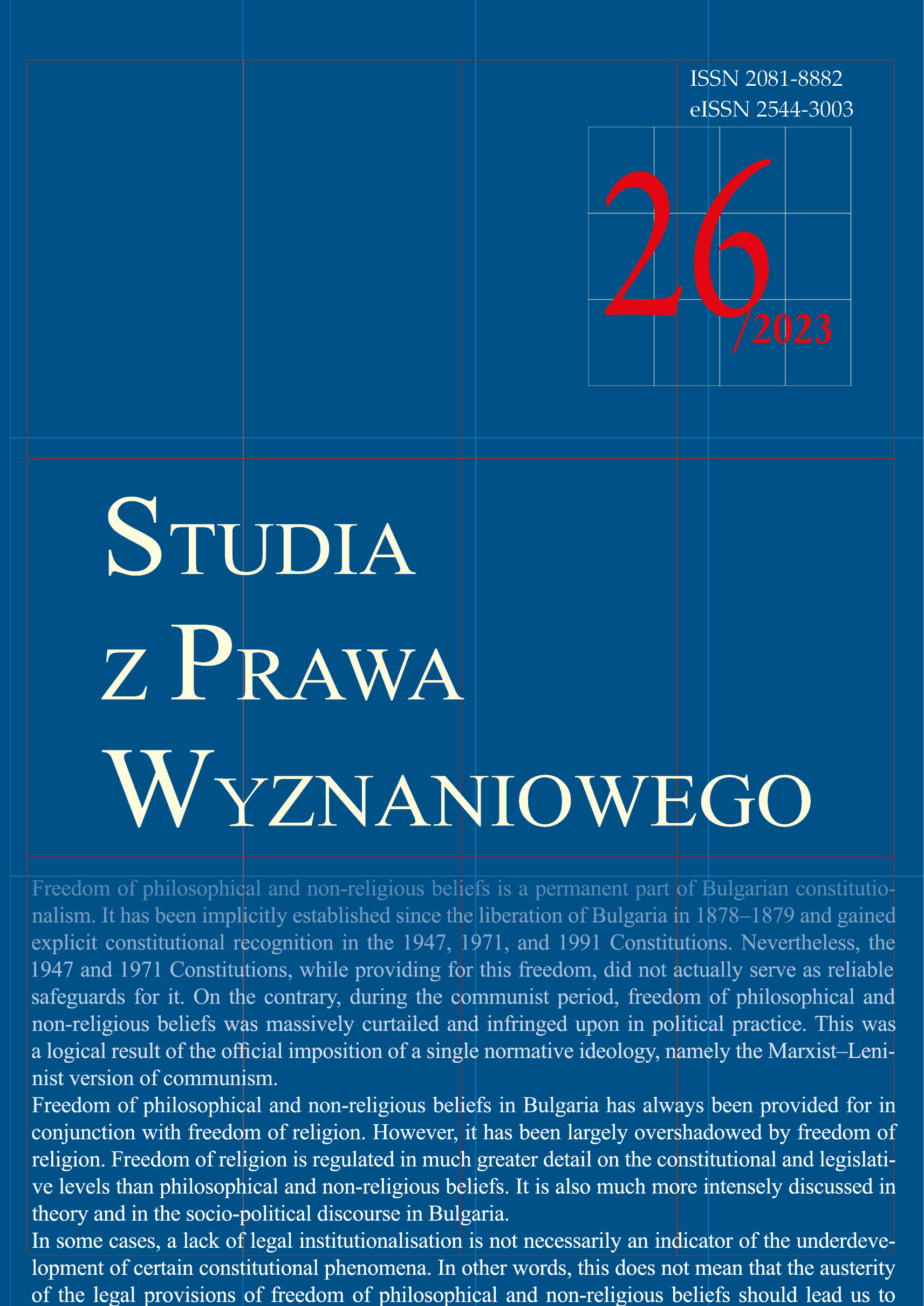Normatywne konsekwencje art. 9 Konkordatu dla polskiego porządku prawnego
Normative consequences of Article 9 of the Concordat for Polish legal order
Author(s): Marcin OlszówkaSubject(s): Civil Law, International Law, Human Rights and Humanitarian Law, Public Law, Canon Law / Church Law, History of Religion, Administrative Law
Published by: Katolicki Uniwersytet Lubelski Jana Pawła II
Keywords: Concordat; nonworking day; holiday; Sunday; Holy See;Konkordat; dzień wolny od pracy; święto; niedziela; Stolica Apostolska;
Summary/Abstract: Polish legal system does not differentiate days which are free from work on the basis of their Catholic/religious or state/secular nature – either at the constitutional level or at the statutory level. Article 66(2) of the 1997 Constitution of the Republic of Poland does not specify public holidays but obliges the legislator to specify them in ordinary legislation. In general, Polish law assumes that two days a week, including Sundays, are free from work, in addition to other holidays. There are also a number of exceptions when an employer is entitled to order work on Sundays or holidays. Article 9(1) of the 1993 Concordat, contrary to Article 66(2) of the Constitution, contains a catalogue of nonworking days, including all Sundays and literally enumerated holidays. It is not a catalogue of Catholic holidays but a catalogue of nonworking days and is binding on the ordinary legislator. In consequence, Polish legislation must not only guarantee the days free from work according to the Concordat but also ensure that on each of these days employees (regardless of the legal basis for providing work) are not obliged to work. Exceptions are permissible but only in situations justified by objective reasons (e.g. security, public order, morality, human life and health); trade, for example, does not fall into one of these exceptions. Interpretative problems are posed by Article 9(2) of the Concordat, which specifies the conditions for expanding the catalogue of public holidays (paragraph 1). The requirement of an agreement between the Parties to the Concordat can be understood either literally – as a requirement of adopting a separate agreement – or teleologically (functionally) – as the absence of opposition (which nevertheless seems to be a more correct interpretation). Another controversy is related to the nature of the catalogue of public holidays in the Concordat. The important question in this regard is whether it should be considered inclusive (i.e. the days indicated in the Concordat have the character of days actually free from work) or exclusive (i.e. only the days indicated in the Concordat have the character of days actually free from work).
Journal: Studia z Prawa Wyznaniowego
- Issue Year: 2023
- Issue No: 26
- Page Range: 281-301
- Page Count: 21
- Language: Polish

